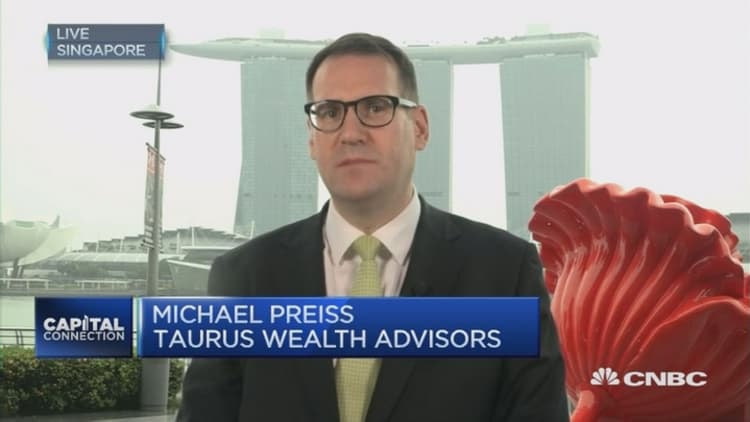Singapore announced support for its battered offshore marine sector and small businesses in the budget for the fiscal year beginning April 1, but did not make big stimulus moves for an economy that's slowing but still expected to grow this year.
Finance Minister Heng Swee Keat also decided to keep unchanged property cooling measures that have hit demand and pulled down home prices in one of the world's most expensive markets.

"Many of our firms are facing weaker top-line growth, rising manpower costs and tighter financing. Workers are anxious as retrenchments has increased, including among professionals," Heng said in a speech in parliament.
"We must not let pessimism take hold, lest it creates self-fulfilling expectations," he said.
Singapore, an island of 5.5 million people with no natural resources, has transformed into a global trade and financial centre. But the city-state's small and medium-sized businesses are facing the burnt of a global economic slowdown, compounded by a clamp down on foreign workers.
The budget statement for the fiscal year starting April 1 comes as Singapore's trade-reliant S$402 billion ($294 billion)economy faces lacklustre growth prospects. The budget made no changes to its low personal income and corporate tax rates, while unveiling a S$4.5 billion plan to transform and grow companies.
"The focus of the budget seems to be very skills- and innovation-driven for companies and Singaporeans," said Selena Ling, an economist at OCBC Bank. "Maybe
they are keeping powder dry in case a recession hits in future."
Given a run of weak economic data, some analysts expect Singapore's central bank to ease monetary policy further at its scheduled meeting in April.
Higher total spending
The government expects growth of 1.0 to 3.0 percent this year after it slowed to 2.0 percent last year, the weakest since 2009.
Total spending in fiscal 2016/17 is expected to rise by S$5.0 billion from the previous year, Heng said.
The government is likely to record an overall budget surplus of S$3.4 billion ($2.48 billion) or 0.8 percent of gross domestic product in fiscal 2016/17, he added.
To help the marine and process industry, Singapore will defer levy increases for work permit holders in the sectors for one year.
"The extended downturn in oil and other commodity prices is affecting commodity-related activities, particularly the marine and offshore sector," Heng said.
Singapore's $10 billion rig industry, dominated by Keppel Corp and Sembcorp Marine is facing cancellations and a dearth of new orders.
To help companies, especially small and medium enterprises, the budget proposed to raise rebates for two years on corporate income tax to 50 percent of tax payable from 30 percent, with a cap of S$20,000 for each year.



